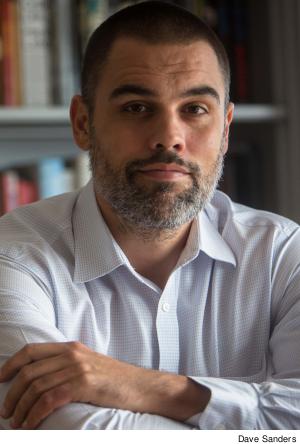A recent New York Times investigation uncovered how Donald Trump – contrary to the image of an innovating real estate baron – gained hundreds of millions of dollars in tax avoidance schemes through the real estate empire he inherited from his father. The story paints Trump not only as mendacious, but points to how he has sapped the financial ecosystem.
 |
John Whitlow, an associate professor at the CUNY School of Law, wrote an op-ed for the paper in response to the investigation, outlining how the sordid rise of Trump, the real estate tycoon, is anything but an anomaly in New York City. Drawing on his experience as a tenants’ rights lawyer – he served as an attorney for Make the Road New York and the Urban Justice Center before entering academia – Whitlow wrote that the Trump real estate empire has acted in the same way most New York City landlords do, by working through tax loopholes and squeezing as much money out of tenants as possible, using legitimate means as well as testing the legal guardrails.
Clarion spoke with Whitlow about his insights.
Clarion: In your piece, you say the Trump Organization acts like any other New York City landlord. Why are NYC landlords so unscrupulous?
Whitlow: New York City has had a tight real estate market for at least a century, and in the past couple of decades, the rent laws have been whittled down to the point where it’s not too difficult for owners of rent-stabilized buildings to move their apartments to the so-called free market. There’s just a tremendous incentive for property owners to act in ways that maximize the return on their investment, which has a significant social cost when the asset in question is someone’s home. This is a context that breeds unscrupulous, antisocial behavior.
Trump is portrayed as being unusually brash and outlandish. In terms of NYC real estate, is he among the most ruthless or merely par for the course?
He’s mostly par for the course. The mix of legitimate business practices and outright graft on the part of landlords in this city is something that all tenants and tenant advocates are very familiar with. The line between legitimacy and criminality is blurred and shifting, and we’re seeing that play out on a national scale with this administration.
How much local power does the NYC real estate industry have?
A tremendous amount. Real estate in New York City is analogous to oil in geopolitics in terms of its capacity to be an animating political economic force. The power of the real estate lobby is compounded, because since the 1970s, New York City residents have had very little say over the city’s housing policy, which is mostly dictated by the state legislature. This means that real estate interests can lobby upstate politicians, who have no rent-stabilized constituents, for favorable policies, while city officials’ hands are tied when it comes to issues of tenants’ rights and affordable housing.
What can tenants do to make NYC more affordable and livable right now?
On a broad level, tenants can continue to organize so that the places they live in are rightfully treated as their homes, instead of just their landlords’ real estate assets. It should be noted that people are already doing this – in their buildings and neighborhoods – all over the city. A recent example of an organizing success is the right to counsel for tenants facing eviction, which was fought for by a coalition of grassroots tenant organizations. To fundamentally address the crisis of affordable housing, I think we need municipal sovereignty over our housing laws, and strengthened rent laws and expanded public housing. This feels like a heavy lift, but I think it’s a necessity given the gravity of the situation we’re in.
Before you came to CUNY, you were a public interest lawyer. Was the transition to academia difficult? Is there anything you miss about your time practicing law?
I love teaching and training students to become public interest lawyers, but every now and then I miss going into housing court and advocating for my clients.

